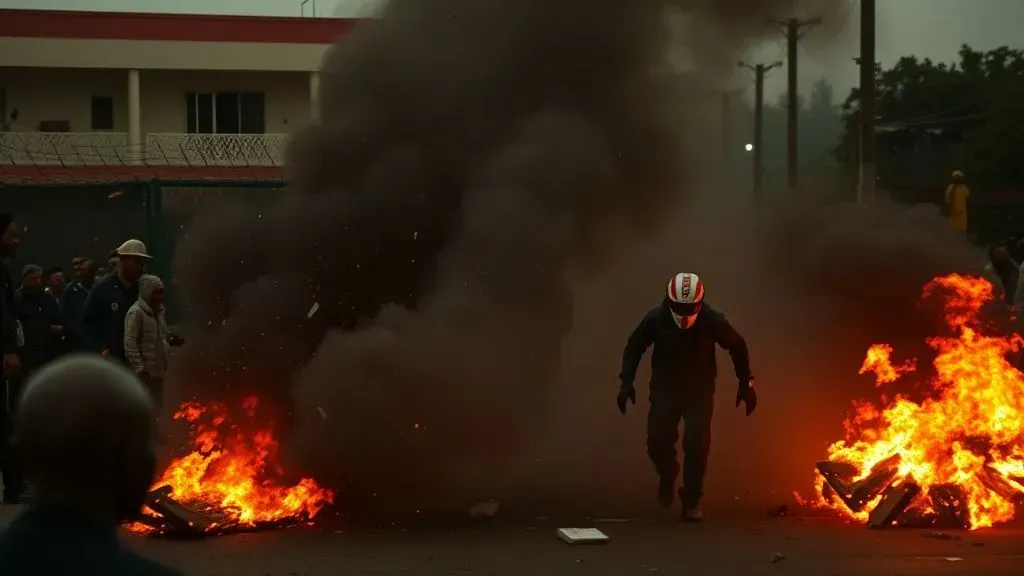
Paul Biya has governed Cameroon for 43 years, holding power longer than any other current African leader. This tenure faces a bold challenge as opposition candidate Issa Tchiroma Bakary announces his win in the October 12, 2025, election. Analysts note growing discontent over economic issues and security threats.
Election Background
Cameroon's presidential election drew over 8 million registered voters. The single-round system awards victory to the top vote-getter.
Incumbent Paul Biya seeks an eighth term at age 92. His rule began in 1982, marked by tight control over state institutions.
Opposition remains fragmented among 13 candidates. Issa Tchiroma Bakary emerges as a key challenger after breaking from Biya's government in June 2025.
Tchiroma leads the Front for the National Salvation of Cameroon. His campaign gained traction through coalitions with other parties and civic groups.
Tchiroma's Victory Declaration
Tchiroma declared victory late on October 13, 2025, via a social media video from Garoua. He bases his claim on publicly posted polling station results.
According to Reuters, Tchiroma states,
Our victory is clear. It must be respected.
He plans to release a region-by-region vote breakdown soon.
Tchiroma urges Biya to concede and honor the ballot box truth. He praises voters for defying intimidation to protect their votes.
Other candidates have congratulated Tchiroma, recognizing the people's will, as per Al Jazeera reports. This adds pressure on the incumbent.
Government Response and Warnings
Cameroon's government labels such unilateral claims as high treason. Minister Paul Atanga Nji warns only the Constitutional Council can announce results.
The Council has until October 26, 2025, to validate and declare official outcomes. Electoral law allows local postings but forbids premature national announcements.
No official response came immediately to Tchiroma's statement. However, pre-election warnings signal potential legal actions against him.
Reports of Irregularities and Clashes
Observers note irregularities in areas like Douala, where some voters faced issues finding their names on lists. These reports come from sources like WADR.
Post-election clashes occur in Garoua, Tchiroma's stronghold. Security forces confront angry supporters amid vote-rigging allegations.
According to Crisis Group, the election risks spurring unrest due to political constraints and succession concerns. Anglophone regions express fears based on 2018 violence.
In Yaoundé, youth protest alleged fraud by Biya's camp. These incidents highlight tensions in the vote aftermath.
Ongoing clashes between citizens and police stem from rigging claims. This violence underscores public frustration with the process.
Protests demand an end to Biya's long rule. Such events could escalate if results dispute arises.
Historical Context of Biya's Rule
Biya's 43-year presidency features economic stagnation and insecurity. Conflicts with Anglophone separatists and Boko Haram persist in regions.
Public discontent grows over these issues. Yet Biya's institutional control often ensures his wins in past elections.
In 2018, opposition leader Maurice Kamto claimed victory but faced arrest. Similar patterns raise doubts about fair processes.
Implications for Cameroon's Future
Tchiroma's claim signals potential shifts in African politics. It challenges entrenched leaders amid calls for democratic change.
If validated, his win could usher reforms in governance and economy. However, disputes might lead to prolonged instability.
Experts from Atlantic Council suggest international support for credible outcomes. This could prevent violence and aid transitions.
The uncategorized nature of this political event emphasizes broad interest in global democracy trends. It connects to wider discussions on leadership longevity.
This declaration spotlights vulnerabilities in extended regimes. It offers lessons on fostering accountable governance in similar contexts.



